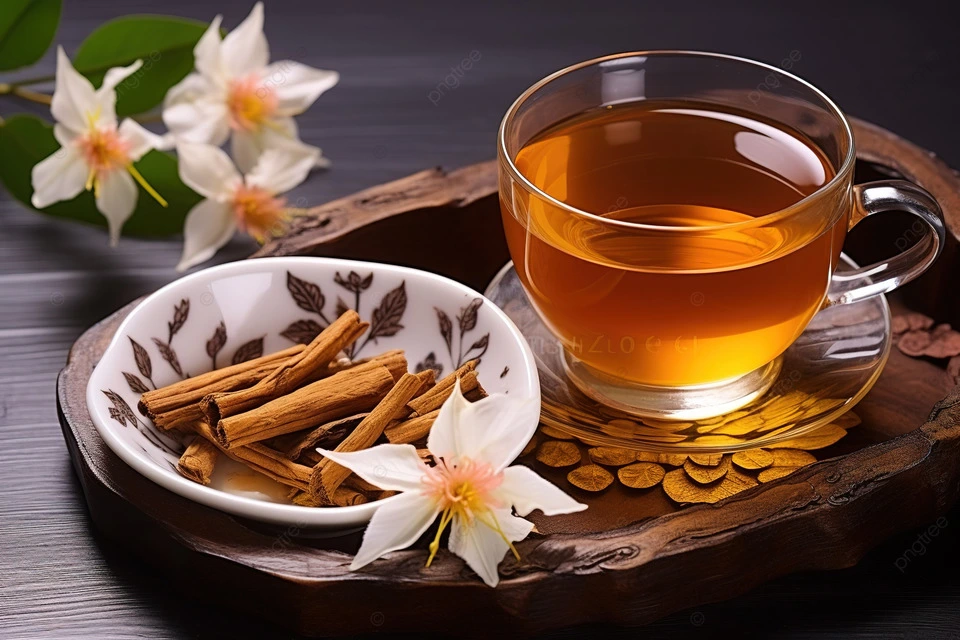Ashwagandha, also known as Withania somnifera, is a potent herb in the realm of Ayurvedic medicine. Renowned for its restorative and rejuvenating benefits, ashwagandha has gained popularity in the West as a natural remedy for stress relief, anxiety, and sleep disorders. One of the most common ways to consume this adaptogenic herb is in the form of tea. This article delves into the typical ingredients found in ashwagandha tea, its potential effects on sleep, and overall health benefits.
Understanding Ashwagandha Tea
What is Ashwagandha?
Ashwagandha is a small shrub with yellow flowers, native to India and North Africa. Extracts or powder from the plant’s roots or leaves are used to treat a variety of conditions. In many cultures, ashwagandha is revered as a tonic that enhances physical and mental health.
The Basic Ingredients of Ashwagandha Tea
The primary ingredient in ashwagandha tea is the root of the ashwagandha plant. The root is either dried and powdered or used as is to infuse in hot water. Here’s a closer look at how ashwagandha tea can be prepared and the common additional ingredients that enhance its efficacy and taste:
- Ashwagandha Root: Fresh or dried root is the base ingredient.
- Honey or Sweeteners: Often added to soften the bitter taste of the root.
- Herbs and Spices: Ginger, cinnamon, or tulsi may be added not only for flavor but also for their synergistic health benefits.
Does Ashwagandha Tea Make You Sleepy?
Ashwagandha’s Effects on Sleep
Ashwagandha is classified as an adaptogen, meaning it helps the body manage stress. It does this by modulating the release and synthesis of stress hormones like cortisol. High cortisol levels can disrupt sleep patterns and prevent deep restorative sleep. By normalizing these hormones, ashwagandha can improve sleep quality.
Scientific Insights
Research indicates that ashwagandha may benefit individuals suffering from insomnia and stress-related disorders. A study published in the Indian Journal of Psychological Medicine found that ashwagandha root extract was able to improve sleep quality significantly in patients with insomnia. The study noted that ashwagandha could help in facilitating the onset of sleep and in achieving a state of restfulness.
Additional Health Benefits of Ashwagandha Tea
Stress Reduction
Ashwagandha’s ability to decrease cortisol levels can significantly affect stress management, making it a popular choice for those looking to mitigate daily stressors naturally.
Cognitive Enhancement
There is growing evidence suggesting that ashwagandha may improve brain function, including memory and reaction times. The antioxidant properties inherent in the root help protect nerve cells from harmful free radicals.
Strength and Stamina
Ashwagandha is traditionally used to strengthen the immune system after an illness. It is also known to enhance stamina, making it a favorite supplement among athletes.
How to Make Ashwagandha Tea
Basic Recipe
- Ingredients:
- 1 teaspoon of dried ashwagandha root powder (or a small piece of the root)
- 2 cups of water
- Honey or a natural sweetener (optional)
- Additional herbs or spices (optional)
- Instructions:
- Bring the water to a boil in a small saucepan.
- Add the ashwagandha root powder or piece and simmer for about 15 minutes.
- Remove from heat and let it steep for another 10 minutes.
- Strain the mixture into a cup and add honey or sweetener if desired.
- Enjoy warm.
Tips for Enhancing Flavor
- Mix ashwagandha with ginger or cinnamon to mask its somewhat earthy taste.
- Adding a herbal tea bag, such as chamomile or peppermint, can also enhance the flavor and benefits.
Safety and Precautions
Potential Side Effects
While ashwagandha is generally safe for most people, some may experience side effects such as gastrointestinal discomfort if taken in large doses.
Considerations
- Pregnant and breastfeeding women should avoid ashwagandha.
- Those with autoimmune diseases or on thyroid medication should consult a healthcare provider due to its effects on the immune system and hormone levels.
Conclusion
Ashwagandha tea, with its simple yet potent ingredients, offers not only a potential remedy for improving sleep quality but also provides a host of other health benefits. Whether you’re seeking a natural way to soothe your nerves, enhance your cognitive functions, or boost your energy levels, ashwagandha tea could be a beneficial addition to your daily regimen. As with any supplement, it is crucial to consider personal health conditions and consult with a healthcare provider to ensure it is appropriate for your health needs.





Your article helped me a lot, is there any more related content? Thanks!